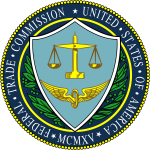As a real estate professional that exclusively handles Massachusetts Short Sales, I continue to receive numerous inquiries about the Federal Trade Commission’s (FTC) Mortgage Assistance Relief Services Act (MARS) that went into effect January 1, 2011. I work with real estate agents on a daily basis and depend on them for a large portion of my business, yet I am still surprised that so much confusion remains over whether MARS applies to Realtors. In response to this confusion, I decided to share my thoughts on whether MARS applies to Realtors. In order to do this, however, it is important to understand what events led to MARS and why the FTC decided to take action.
In November of 2010, The FTC announced that it would be issuing a new rule, effective in 2011, to protect struggling homeowners from mortgage relief scams. This rule was originally created to target fraudulent mortgage relief companies that were collecting upfront fees from homeowners without performing any actual services. In practice, however, MARS encompasses services far greater than those provided by the sham mortgage relief companies and currently affects all Realtors working in the short sale industry. According to the current rule, any Realtor working on a short sale transaction must comply with MARS otherwise they could face fines of $11,000 per day. Surprisingly, very few Realtors are aware of the new changes and even less are compliant with the new disclosure requirements. In the paragraphs that follow, I am going to provide a MARS primer for all real estate professionals who claim to be short sale experts but may not be abreast of the recent changes in the law.
MARS 101: A PRIMER FOR ALL REALTORS, ATTORNEYS AND NEGOTIATORS:
A) MARS: AN OVERVIEW OF THE RULE:
While the entire MARS ruling can be read here, I believe that the FTC Media Advisory dated November 19, 2001 provides the most clear and concise summation of the rule and is the best place to start the analysis.
I. Rule Outlaws Advance Fees and False Claims, Requires Clear Disclosures:
Homeowners will be protected by a new Federal Trade Commission rule that bans providers of mortgage foreclosure rescue and loan modification services from collecting fees until homeowners have a written offer from their lender that they decide is acceptable.
“At a time when many Americans are struggling to pay their mortgages, peddlers of so-called mortgage relief services have taken hundreds of millions of dollars from hundreds of thousands of homeowners without ever delivering results,” an FTC Chairman said. “By banning providers of these services from collecting fees until the customer is satisfied with the results, this rule will protect consumers from being victimized by these scams.”
The FTC is issuing the Mortgage Assistance Relief Services (MARS) Rule to protect distressed homeowners from mortgage relief scams that have sprung up during the mortgage crisis. Bogus operations falsely claim that, for a fee, they will negotiate with the consumer’s mortgage lender or servicer to obtain a loan modification, a short sale, or other relief from foreclosure. Many of these operations pretend to be affiliated with the government and government housing assistance programs. The FTC has brought more than 30 cases against operations like these, and state and federal law enforcement partners have brought hundreds more.
i) Advance fee ban:
The most significant consumer protection under the FTC’s new rule is the advance fee ban. Under this provision, mortgage relief companies may not collect any fees until they have provided consumers with a written offer from their lender or servicer that the consumer decides is acceptable, and a written document from the lender or servicer describing the key changes to the mortgage that would result if the consumer accepts the offer. The companies also must remind consumers of their right to reject the offer without any charge.
ii) Prohibited claims:
The MARS Rule prohibits mortgage relief companies from making any false or misleading claims about their services, including claims about:
- the likelihood of consumers getting the results they seek;
- the company’s affiliation with government or private entities;
- the consumer’s payment and other mortgage obligations;
- the company’s refund and cancellation policies;
- whether the company has performed the services it promised;
- the availability or cost of any alternative to for-profit mortgage assistance relief services;
- the amount of money a consumer will save by using their services; or
- the cost of the services.
In addition, the rule bars mortgage relief companies from telling consumers to stop communicating with their lenders or servicers. Companies also must have reliable evidence to back up any claims they make about the benefits, performance, or effectiveness of the services they provide.
iii) Disclosures:
The Rule requires mortgage relief companies to disclose key information to consumers to protect them from being misled and to help them make better informed purchasing decisions. In their advertising and in communications directed at individual consumers (such as telemarketing calls), the companies must disclose that:
- they are not associated with the government, and their services have not been approved by the government or the consumer’s lender;
- the lender may not agree to change the consumer’s loan; and
- if companies tell consumers to stop paying their mortgage, they must also tell them that they could lose their home and damage their credit rating.
Companies also must explain in their communications to consumers that they can stop doing business with the company at any time, can accept or reject any offer the company obtains from the lender or servicer, and, if they reject the offer, they don’t have to pay the company’s fee. The companies also must disclose the amount of the fee.
iv) Attorney exemption:
Attorneys are generally exempt from the rule if they meet three conditions: they are engaged in the practice of law, they are licensed in the state where the consumer or the dwelling is located, and they are complying with state laws and regulations governing attorney conduct related to the rule. To be exempt from the advance fee ban, attorneys must meet a fourth requirement – they must place any fees they collect in a client trust account and abide by state laws and regulations covering such accounts.
v) Effective Date:
All provisions of the rule except the advance-fee ban will become effective December 29, 2010. The advance-fee ban provisions will become effective January 31, 2011.
(End of FTC Media Advisory)
Following the November Press Release, many Realtors dismissed the new law as not applying to them. It quickly became evident, however, that those Realtors were mistaken.
B) THE MARS DEBATE: DOES THE RULE APPLY TO REALTORS?
 As the FTC report clearly stated, MARS was issued with the intent to protect distressed homeowners from mortgage relief scams by specifically targeting the numerous bogus operations that claim, for a fee, they will negotiate with the consumer’s mortgage lender or servicer to obtain a loan modification, a short sale or other relief from foreclosure. What was conspicuously absent from the ruling, however, was any language regarding Realtors and whether they would be exempt from the ruling. The FTC took deliberate acts to clearly exempt attorneys from the ruling as long as they met minimum standards. Realtors, on the other hand, were left to guess as to whether they were subject to the rule. As Realtors scrambled for an interpretation, many attorneys and industry experts began to comment on the matter. The legal experts quickly focused on Page 35, Footnote 126 of the MARS rule in order to ascertain whether MARS applies to Realtors.
As the FTC report clearly stated, MARS was issued with the intent to protect distressed homeowners from mortgage relief scams by specifically targeting the numerous bogus operations that claim, for a fee, they will negotiate with the consumer’s mortgage lender or servicer to obtain a loan modification, a short sale or other relief from foreclosure. What was conspicuously absent from the ruling, however, was any language regarding Realtors and whether they would be exempt from the ruling. The FTC took deliberate acts to clearly exempt attorneys from the ruling as long as they met minimum standards. Realtors, on the other hand, were left to guess as to whether they were subject to the rule. As Realtors scrambled for an interpretation, many attorneys and industry experts began to comment on the matter. The legal experts quickly focused on Page 35, Footnote 126 of the MARS rule in order to ascertain whether MARS applies to Realtors.
C) A LEGAL INTERPRETATION OF MARS:
As one legal expert explained in a letter to the National Association of Realtors, Page 35, Footnote 126 of the FTC MARS rule makes it ‘sound’ like agents are exempt, but the parts highlighted below are the points where many attorneys say it is not clear that Realtors are fully exempt:
“As a general matter, the Final Rule is not intended to apply to the marketing of services to assist consumers in selling their properties to third parties. The Final Rule, however, does specifically cover the marketing of services involving the sale of properties to third parties if those services are designed or intended to assist consumers in averting foreclosure, e.g., through a short sale or deed-in-lieu of foreclosure. One commenter urged the Commission to exempt licensed real estate professionals from the Final Rule. NAR at 1-2. The commenter argued the Rule would restrict real estate agents in helping consumers with the process of selling their homes through short sales. Id. The Commission concludes that an exemption for real estate agents is not necessary. Real estate agents customarily assist consumers in selling or buying homes and perform functions such as listing homes for sale, showing homes, and finding desirable homes for consumers. The Commission is aware that real estate agents may perform these functions when properties are bought or sold through a short sale transaction, but does not consider these services to be MARS.”
Upon first reading, it appears as if MARS does not apply to Realtors because the FTC considers their customary functions to be outside purview of the rule. In my non-legal opinion, however, this in an incorrect assumption. The FTC dropped the ball by not expressly exempting Realtors from the rule, as they did attorneys. Instead of providing a provision that clearly exempted Realtors, the FTC left a glaring ambiguity by simply stating that “agents can perform these services in a short sale transaction and not be considered MARS. When interpreting the rule, however, legal experts focus on the fact that the FTC narrowly defines these services as the function of “assisting consumers in selling or buying homes and performing functions such as listing homes for sale, showing homes, and finding desirable homes for consumers.” The FTC’s narrow definition of which services are not MARS services leaves the door open that additional services performed by a Realtor may qualify as MARS services.
The FTC failed address whether Realtors were excluded from MARS if they perform any functions beyond listing, showing and finding homes. Anyone who has worked on a short sale knows that the functions performed clearly involve services beyond simply listing and showing the home. The rule is incredibly broad, yet it fails to examine whether the services customarily performed by agents as a part of a short sale transaction are MARS services. What if the Realtor contacts the bank on behalf of a homeowner or negotiates a short sale of the property? Don’t these qualify as the types of services that MARS was intended to regulate? The Rule clearly defines which services it intends to encompass:
Section 322.2 DEFINITIONS: (i) ‘‘Mortgage Assistance Relief Service’’ means any service, plan, or program, offered or provided to the consumer in exchange for consideration that is represented, expressly or by implication, to assist or attempt to assist the consumer with any of the following: and followed by subsection (6) Negotiating, obtaining or arranging:
(i) A short sale of a dwelling,
(ii) A deed-in-lieu of foreclosure, or
(iii) Any other disposition of a dwelling other than a sale to a third party who is not the dwelling loan holder.
It seems to me that the rule clearly intends to cover the services of negotiating, obtaining or arranging the short sale of a dwelling. As a result, Realtors should proceed with caution until the National Association of Realtors (NAR) or local State Associations issue a legal opinion on the MARS rule. Without such an opinion, the conclusion that Realtors are exempt from MARS is short sighted and needs to take into consideration whether the FTC intended to exclude the additional services provided by Realtors during a short sale transaction. If these services were not considered to be MARS services, why didn’t the FTC make an explicit Realtor exemption when they had the chance?
D) WHAT MARS MEANS TO REALTORS: ARE YOU IN COMPLIANCE?
Based on the above analysis, it is reasonable to assume at the very least that the FTC MARS ruling is unclear. In short, if you are a Realtor and you are are performing any services beyond listing and showing a home, you should assume that MARS applies to you. If you are paid for negotiating the short sale, MARS unquestionably applies to you. Whether your compensation derives from the the listing commission or a separate negotiation fee, the FTC’s failure to explicitly exempt Realtors from MARS could result in major fines. Is it worth risking the hefty fines simply because you didn’t properly disclose your role as a MARS provider to the consumer?
E) CONCLUSION:
 Again, I am not an attorney, nor do I claim to be a real estate expert, but until the FTC expounds on the rule or NAR issues a legal opinion, it would be safe to assume that all Realtors working on a short sale transaction should err on the side of caution and comply with the statutory requirements set forth by the FTC MARS Rule. It is also important to note that even if you are simply providing a short sale referral to another agent, a third party negotiator or even an attorney, you may also be subject to the MARS requirements as the rule currently reads. As someone who works exclusively on short sales, I am going to encourage all of the Realtors with whom I work that they are likely subject to the FTC MARS Ruling because they are performing services beyond the mere function of finding, listing and showing homes. Do you have your disclosures and advertising materials in order?
Again, I am not an attorney, nor do I claim to be a real estate expert, but until the FTC expounds on the rule or NAR issues a legal opinion, it would be safe to assume that all Realtors working on a short sale transaction should err on the side of caution and comply with the statutory requirements set forth by the FTC MARS Rule. It is also important to note that even if you are simply providing a short sale referral to another agent, a third party negotiator or even an attorney, you may also be subject to the MARS requirements as the rule currently reads. As someone who works exclusively on short sales, I am going to encourage all of the Realtors with whom I work that they are likely subject to the FTC MARS Ruling because they are performing services beyond the mere function of finding, listing and showing homes. Do you have your disclosures and advertising materials in order?
UPDATE: The National Association of Realtors® (NAR) issued a statement since this article was originally posted.
The NAR Legal Department concluded that MARS is primarily directed toward those who offer loan modification services, but it also applies to those who negotiate “a short sale of a dwelling on behalf of a consumer.” As predicted, the rule has broad implications. According to NAR, “FTC staff has determined that ‘negotiate’ will include communications with a lender about the possibility of a short sale transaction involving a consumer’s loan.” Under the regulations, anyone who provides short sale negotiation services is considered a MARS provider.
There are three types of disclosures and disclosure situations covered by the rules.
1. General Commercial Communications Disclosures- Any Realtor or real estate salesperson who offers short sale services is subject to the disclosure requirement. Any advertisements must include a clear and prominent disclosure with the following language:
IMPORTANT NOTICE (in two-point type larger than the font size of the disclosure): (Name of Company) is not associated with the government, and our service is not approved by the government or your lender. Even if you accept this offer and use our service, your lender may not agree to change your loan. If you stop paying your mortgage, you could lose your home and damage your credit rating.
2. Consumer-Specific Commercial Communications: This refers to communications directed to specific persons who may qualify as a short sale candidate. If the communication about short sale services is directed to a targeted list, such as marketing emails, the disclosure will probably have to accompany the communication. . (NAR has provided a sample disclosure for such a situation. The required consumer-specific disclosure states the following:
IMPORTANT NOTICE (in two-point type larger than the font size of the disclosure): You may stop doing business with us at any time. You may accept or reject the offer of mortgage assistance we obtain from your lender [or servicer]. If you reject the offer, you do not have to pay us. If you accept the offer, you will have to pay us (insert amount or method for calculating the amount) for our services. (Name of company) is not associated with the government, and our service is not approved by the government or your lender. Even if you accept this offer and use our service, your lender may not agree to change your loan. If you stop paying your mortgage, you could lose your home and damage your credit rating.
3. Disclosure When Providing an Offer of Mortgage Relief: Upon receipt of third- party short sale approval, MARS providers are required to make another disclosure to the homeowner:
IMPORTANT NOTICE: Before buying this service, consider the following information (in two-point type larger than the font size of the disclosure): This is an offer of mortgage assistance we obtained from your lender [or servicer]. You may accept or reject this offer. If you reject the offer, you do not have to pay us. If you accept the offer, you will have to pay us [same amount as disclosed previously] for our services. If you stop paying your mortgage, you could lose your home and damage your credit rating.
About the Author: Greater Boston Short Sales, LLC (GBSS) is Massachusetts’ leading short sale negotiator. GBSS assists homeowners, Realtors and attorneys with getting their short sales closed. Contact us today if you are a homeowner facing foreclosure or a Realtor seeking assistance with a short sale transaction. GBSS is a MARS provider. Please read our disclaimer HERE.









{ 1 trackback }